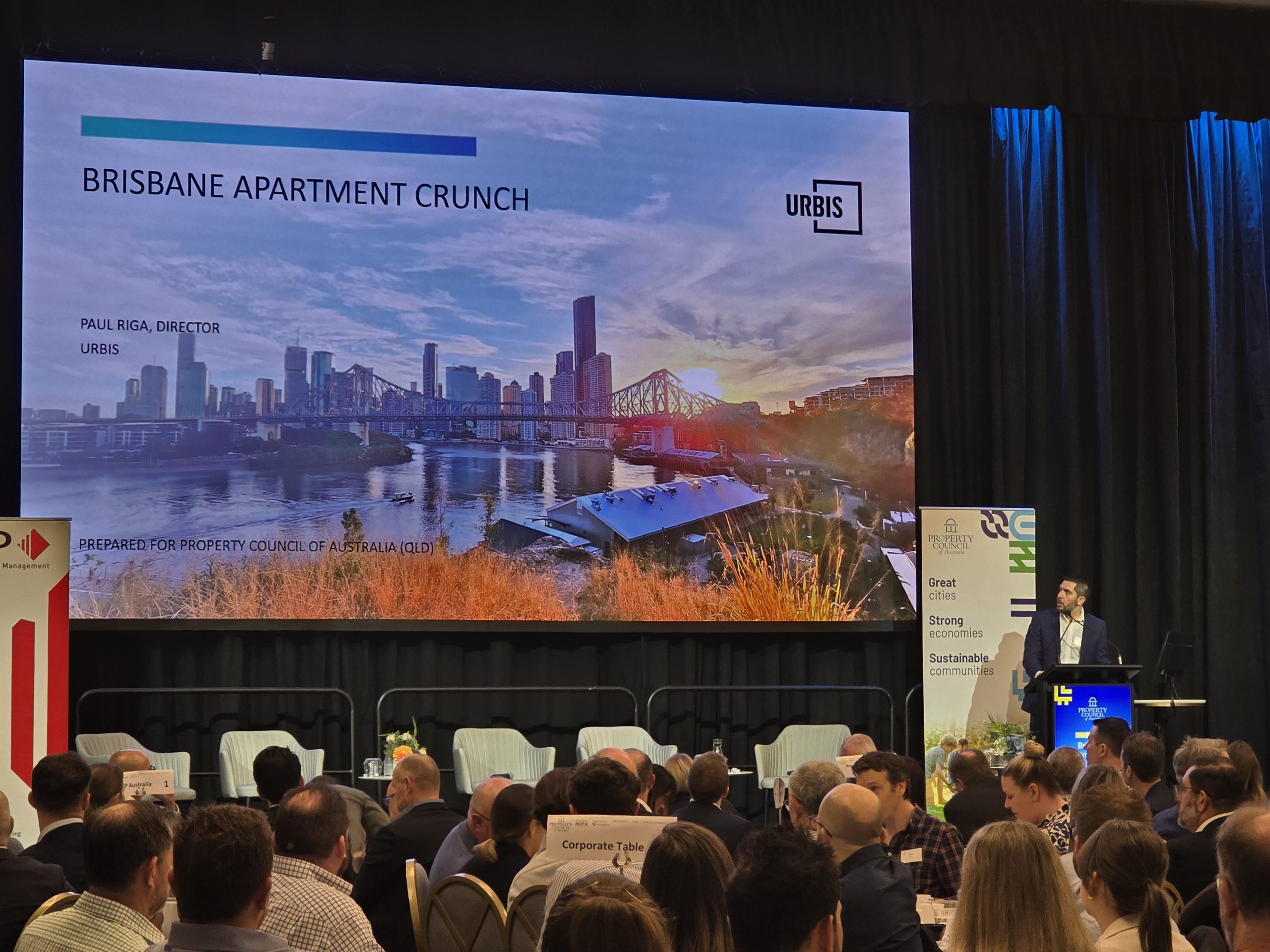Brisbane’s apartment pipeline has struggled to keep up with demand since 2019 and looks set to continue to fall short for the foreseeable future.
In a keynote address at the Property Development of Australia’s Queensland breakfast series, Urbis Director Paul Riga showed when it comes to Brisbane apartment supply the pipeline is constrained with sticky headwinds.
Urbis data reveals Brisbane has not developed the quantum of apartment supply required under the regional plan since 2019 and is unlikely to do so for the foreseeable future.
Riga said Brisbane would fall short of its medium and high-rise targets required by the South East Queensland Regional Plan by 1,000 – 2,000 dwellings annually over the period to 2027.

“It is clear from the data that Brisbane has lagged behind where it needs to be in terms of apartment supply and unless something drastic changes, will continue to fall short in terms of delivering high density attached product.
“Worryingly our analysis is potentially optimistic given the widely publicised headwinds being experienced in the multi-residential sector with a third of Brisbane’s supply at a moderate to high risk of not being developed by 2027.
